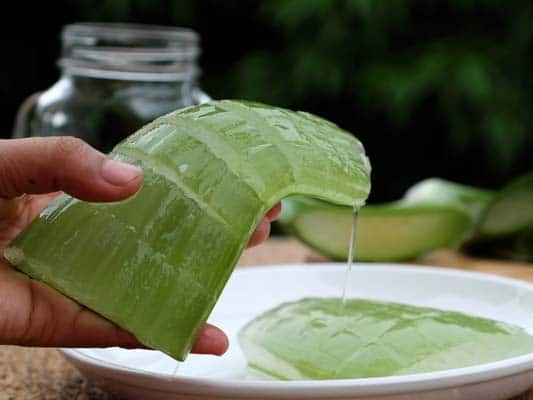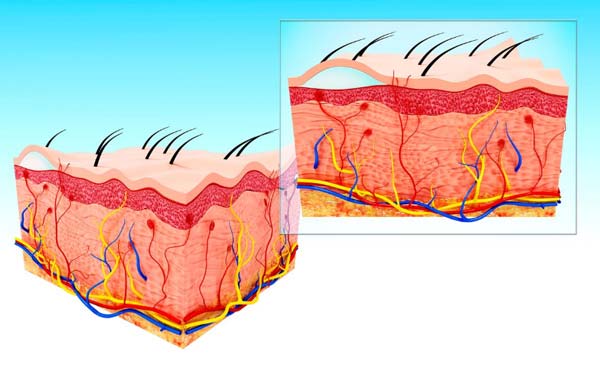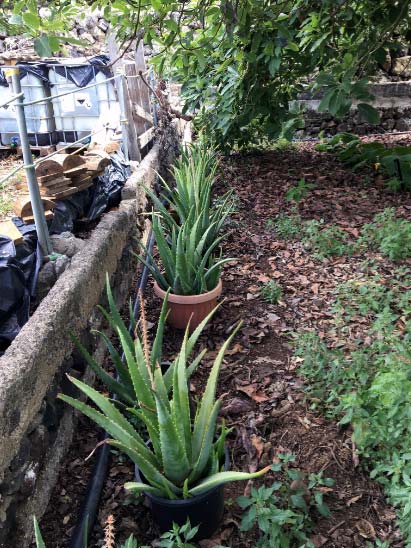Is Aloe Vera the Secret to Youthful Skin? (Hint: The Results Are Beyond Amazing!)
Aloe vera is GREAT for mature skin. Packed with benefits (check them all out here), I wanted to concentrate on its benefits for mature skin on this post.
So, here we go.
5 Benefits of Aloe Vera for Skin (Anti Ageing)
1. Antioxidant Properties that Improve Collagen Production and Skin Elasticity
Antioxidants reduce or prevent the production of free radicals. More info on this here. Free radicals are formed by the body’s natural processes or as a result of environmental factors. They cause oxidation which in turn damage our cells.

Antioxidants repair skin that has been damaged from the inside out instead of the outside in which is how moisturisers work. They encourage cell regeneration as well. Reduce the amount of free radicals that get formed and you’ll reduce the amount of wrinkles that could appear.
By combating free radicals aloe vera helps slow the aging process as aloe can provide anti-aging benefits by improving collagen production and skin elasticity.
As you can see, antioxidants play a very important role when it comes to delaying the ageing process by minimising wrinkles and fine lines.
2. Contains Active Enzymes, Vitamins & Minerals
Amino Acids
The amino acids found in aloe vera help soften skin cells which provides a moisturising effect on our skin.
- Aloe vera contains seven of the eight KEY amino acids that the body needs
- Aloe vera contains twenty of the twenty two required amino acids
- Aloe vera contains many other essential amino acids
Minerals
Aloe vera contains magnesium, manganese and selenium (which helps destroy the free radicals). It also contains zinc which helps protect against the free radicals as well.
Vitamins
Aloe vera include the following vitamins: B1, B2, B6 and B12. It also contains Vitamin C which is an antioxidant. Finally, its Vitamin E content adds to its antioxidant powerhouse, helping protect the skin cells from premature aging.
3. Protects Against UV Light (the Number 1 Ageing Concern)
That’s right. With an SPF of around 10, aloe vera has a protective effect against UV light as it seems to contain an antioxidant protein that is generated in the skin that helps prevent UV damage.
4. Helps Stimulate Fibroblasts
Aloe helps stimulate fibroblasts which are in charge of the production of collagen and elastin fibres. This means the skin will appear more elastic as a result. Aloe will also help softening the skin by binding the cells together.
5. Soothes Inflammation and Reduces Redness
One of aloe vera’s best-known benefits is the fact that it can calm as well as soothe irritated skin. As we age, our skin can become more sensitive and prone to inflammation, redness, and irritation. Aloe vera’s anti-inflammatory properties can help reduce this inflammation, it can provide relief from conditions like rosacea or general skin sensitivity, etc.
Aloe vera contains compounds like acemannan and salicylic acid (check my article on this), which naturally soothe skin and reduce irritation. This not only calms redness but also helps repair damaged skin, improving overall skin tone and texture, helping ageing skin regain freshness, plumpness and smoothness.
Pro Tip: Apply aloe vera to red zones and areas of your skin. Either after cleansing OR mix a small amount into your moisturiser or body cream for that boost!
Aloe Vera Can Help Your Skin Regain its Elasticity & Reduce Wrinkles

I love aloe vera and have MANY aloe vera plants in my finca in Tenerife, Canary Islands, Spain. Yes, the weather is great here to grow the plant but it’s easy to grow your own aloe vera plant at home (beware you need the plant to be at least 4 or 5 years before you start using the gel in the leaves and also you need to let the leaves in water for at least 24 hours so they can purge the toxic stuff). That’s for another post : )

If you don’t have your own plants and/or don’t know how to extract the gel then the best thing is to buy organic aloe vera gel and use it as part of your skincare routine. You can apply after cleansing and before your moisturiser (as a toner) or you can apply together with your moisturiser (mix a bit in the palm of your hand with your moisturiser). You can mix with your water based serums (for example hyaluronic acid). Just find the ‘spot’ for your aloe vera gel in your skincare regime, you won’t regret it.
If you’re brand new to aloe vera here’s another post I wrote which might be of interest. And here are my recommended organic aloe vera gels although I’ll showcase them below again (if you’d like to know about them in detail click on the link).
